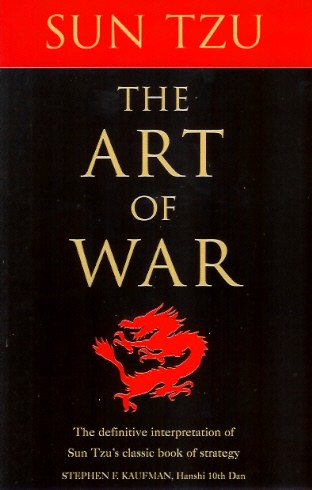
At his suburban office, Anwar appears in bare feet and apologises for a short delay while he says his fourth round of prayers for the day. Fifteen minutes later, the opposition leader is back, shod now in black ostrich-skin brogues, to talk about his extraordinary bid to convince the Government that, despite its apparent majority in Parliament, he should be in charge.
The psychological warfare is getting fraught. Prime Minister Datuk Seri Abdullah Ahmad Badawi had said Anwar was a "threat to the economy and possibly security" — indicating the opposition leader could fall foul of the draconian Internal Security Act.
In a formal statement yesterday, the US State Department said Abdullah's remark was "extremely troubling" and
Anwar wonders if he is heading back to prison. "When the prime minister, in any developing country where these sorts of security laws are in operation, states that you are a threat to the economy and possibly national security, then the next option is to arrest," he says.
A decade ago, when Anwar was deputy prime minister, his bid for power against then Prime Minister Tun Dr Mahathir Mohamad ended in disaster.
Hit with highly questionable charges of sodomy and trying to interfere with a police investigation, he spent six years in jail. He was released in 2004 when the more conciliatory Abdullah succeeded Dr Mahathir.
Now 61, Anwar has closed in on the Barisan Nasional ruling coalition that so humiliated and punished him for his "reformasi" bid in 1998.
In March, his improbable Pakatan Rakyat coalition of three diverse parties — his PKR, the leftist, ethnic Chinese-based DAP and the Islamic party Pas — broke Barisan's two-thirds majority in the federal Parliament, and won control of five of
On Aug 26, Anwar won a by-election with a huge majority, despite having another sodomy charge laid against him shortly before the vote.
This week, Anwar announced he had "more than enough" defections from Barisan MPs to form a government, and asked to meet Abdullah to effect a smooth transfer of power. Unsurprisingly, Abdullah derided the request, as he did Anwar's later call to reconvene Parliament.
Barring an unlikely intervention by the King, Tuanku Mizan Zainal Abidin, Anwar faces a nervous wait until Parliament resumes on Oct 13.
He faces a relentless onslaught on his credibility by the state-controlled broadcast media and the mainstream newspapers.
He and his colleagues are also at risk from the highly politicised police, whose secretive Special Branch has morphed from its original role of fighting communist insurgents into one of keeping Barisan in power.
The Special Branch wields the Internal Security Act, which allows suspects to be held for 60 days, where interrogators specialise in "turning over" (breaking down) detainees through prolonged questioning, sleep deprivation, humiliation and disorientation. Then they can be locked away without trial for renewable two-year terms.
Last Friday, the Special Branch arrested MP Teresa Kok, an ethnic-Chinese member of Anwar's alliance, after a newspaper ran spurious reports that she had tried to stop a mosque broadcasting the morning call to prayer.
The country's best-known blogger, Raja Petra Kamarudin, was also taken in under the security Act, while another journalist was briefly detained.
Kok was released yesterday after a week's detention, and Abdullah seemed to back off his implied threat. But Anwar's team is acutely aware that only five arrests of MPs could change a no-confidence vote, if and when it happens.
"When a party has been in power for more than half a century, to imagine losing their grip on power is going to be horrendous, unthinkable and they may resort to this measure," Anwar said.
But he has his work cut out explaining to ethnic Malays why the positive discrimination of the past 40 years — preference for university places, government jobs, finance credits, cheaper houses and a 30% slice of new investments — mostly benefited a tiny, well-connected elite through Barisan founding party Umno and its networks of cronyism and patronage, and should be replaced with policies based on need rather than race.
On the other side, non-Malays wonder about his Islamist background and recall his role implementing pro-Malay discrimination as an Umno minister.
"It took us a while to come to terms and go from Anwar who was education minister and actually did a lot of damage to the Chinese school system, to the new reformist Anwar," said Dominique Ng, a Kuching lawyer who won a
Ng is now convinced that "the new Anwar can be the one who saves
Anwar doesn't regret his years in the Mahathir government.
"With all the faults and limitations of Umno at that time, it was never this blatantly corrupt and arrogant," he said.
He could have protested more loudly against the Mahathir government's security Act arrests and sacking of judges, but had still hoped to change the system from within.
"Having said that, I've suffered enough, I've repaid for the years I was in government," he said with a smile.
His agenda for Islam in
But his jail ordeal strengthened his concern for freedom. "Being six years in prison, solitary confinement, teaches you quite a lot," he said. "The passion for democracy, for justice, is far more pronounced … Basically these years of sojourn and wilderness did help.
"You empathise with people as people. I am very Malay, I love the language, I follow Indonesian literature a lot … I am also a committed Muslim. I fast, I pray, but that does not make us intolerant of other cultures."
"So who am I?" Anwar says. "They say I'm a chameleon because to the Western journalists I sound liberal, to the Muslim crowd I echo the Quran.
"It's true — I don't go into the little village and quote Shakespeare, and when I talk to Chinese I use a few words of their language and quote Confucius. But the fundamental pillars remain unchanged … I am still a Malay, a committed Muslim, and very much a Malaysian."

No comments:
Post a Comment